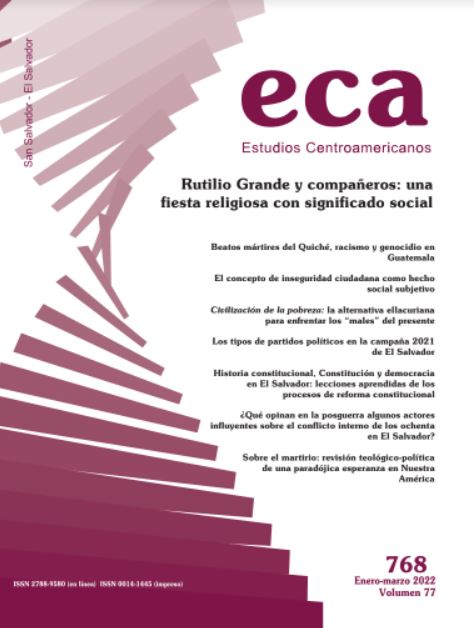Abstract
The paper problematizes the concept of Citizen Insecurity as a subjective social fact from El Salvador without losing sight of the Latin American context. The social openness and the exacerbation of post-war criminal violence in the 90s would have strengthening peculiar speeches and survey research, up to the institutionalization of the category of Citizen Insecurity. There would be five epistemological flaws due to the theoretical-reflexive vacuum of the concept: tecnocratism, categorical inefficiency, a solipsistic ontology, criminal animism and heteronormative blindness. Relying on the Attitude Theory Approach, some alternatives are proposed to correct the epistemological deficiencies stated. A concept of citizen insecurity is proposed and empirically illustrated that has three dimensions: perceived risk, fear of crime, and precautionary actions. The paper concludes by highlighting theoretical, practical, and ideological implications of this way of understanding citizen insecurity.
ECA Estudios Centroamericanos, Vol. 77, No. 768, 2022: 33-56.

This work is licensed under a Creative Commons Attribution-NonCommercial-NoDerivatives 4.0 International License.
Copyright (c) 2022 Carlos Iván Orellana





